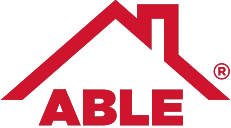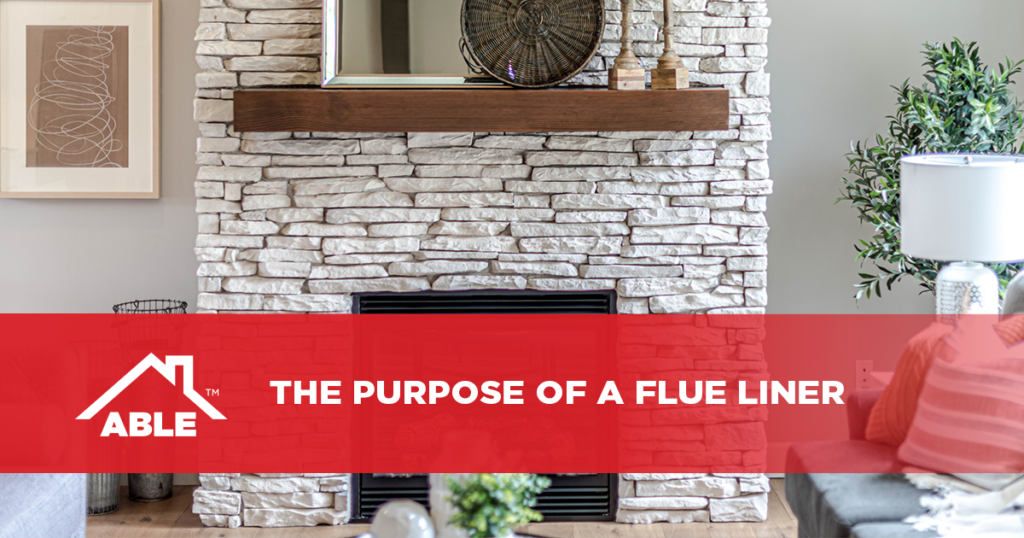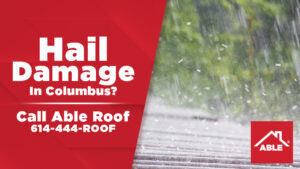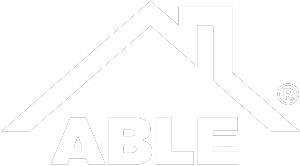Sixty years ago, chimneys were exclusively made from clay tiles that lined the inside of the chimney. Still in use today in some homes, these clay tiles worked decently, but now we have flue liners, or chimney liners, which work much more efficiently. Here is a complete guide for flue liners, including what they are, whether you need one, how to install it, as well as everything else you may need or want to know before you purchase a flue liner.
What is a flue liner?
Also referred to as a chimney liner, a flue liner is a tube made of flexible material that connects your stove to the top of the chimney. This ensures that any fumes are properly expelled out of the top of the chimney and do not linger in your home. A flue liner functions as the backbone for a stove, furnace, or water heater in your home and, as such, is absolutely essential for your safety. It makes sure that when you are burning fuel, that you are doing so as efficiently as possible.
Flue liners are a crucial step for making your chimney and your home much cleaner and safer. If you are using your chimney for the first time, or aren’t sure if your chimney has a proper flue liner, consider having it inspected by a professional. A professional will be able to tell whether your home has a flue liner and what its condition is. This will provide peace of mind that you will not have any leaks or clogs in your chimney.
Why do I need a flue liner?
The purpose of a flue liner is to further ensure your safety, keep the chimney clean, and increase the efficiency of your stove. Especially if you own a house with a chimney that is lined with clay tiles, you may need to look seriously into having a flue liner installed. Clay tiles crack and deteriorate over time, leaking harmful fumes and endangering everyone in your home.
Flue liners are proven to decrease the chance of carbon monoxide leaks in your chimney. It also prevents blockages in your chimney as well as most leaks or cracks that could lead to the spilling of harmful fumes. Flue liners also keep the chimney clean by preventing smoke from dirtying the chimney or even creating dangerous blockages. Lastly, flue liners help funnel the smoke out of your house, keeping it from lingering inside.
Do I need a flue liner for a wood-burning stove?
Although there are no laws that require you to have a flue liner installed in your chimney, so long as they otherwise meet safety standards, flue liners are highly recommended in the installation of most types of stoves, including wood burning stoves. With a flue liner in place, you will find that your log burner stove has better performance, is able to light faster, and is kept burning without having to worry about drafts. Flue liners protect your chimney and your home, making sure your stove is safe and in proper working order for a long time.
The different sizes of flue liner
Once you decide to purchase a new flue liner, it can be difficult to figure out which liner is best for your home. If you buy a new stove, the manufacturer will typically be able to recommend a size and type of flue liner that works best for the stove to improve its efficiency and safety. If you purchased a log burner, always use the recommended size, and nothing smaller. Using the wrong flue liner with a specific stove can lead to several different problems and can be extremely dangerous.
As a general rule, keep in mind that a stove of up to 20kW needs a flue of at least six inches. You can, however, use a five-inch diameter flue liner if you have a stove that specifically states that size flue liner is required. Adapters are available for your stove, if you find the stove collar is smaller than the flue liner needed for the stove. When it comes to length, it is better to get too much than too little. If the liner is too long, it can be shaved from off the top of a flue liner but connecting two shorter liners is not only illegal according to current building codes, but you cannot do so without risking serious danger.
A professional should be able to measure the chimney for you and give you a proper estimate, so you can purchase a flue liner for your home that will keep you safe and ensure your stove runs smoothly. When it comes to your flue liner, in terms of diameter, bigger is not necessarily better. A flue liner that is too large will give you a slow draft and poor performance, and one that is too small will restrict the draft.
Figuring out the right type of flue liners
It is unsafe to use a flue liner intended for a gas range stove on a wood-burning unit. When selecting a flue liner for your log burning stove, you will need to consider a couple options. There are two main types of flue liners intended for various stoves, based on the stove’s fuel: a 316-grade flue liner or a 904-grade flue liner. If you are only burning seasoned wood in your stove, 316 grade is cheaper and works great. If you are planning to burn coal frequently when you cook on your stove, we would recommend a 904-grade liner. These are built to be more durable as well as better for burning coals, though it is more expensive than the 316 grade.
There are also stainless-steel flue liners available that are extremely safe and durable. They are also well equipped to handle most fuel-burning appliances. A professionally installed stainless-steel flue liner will improve venting performance and ensure you have one of the safest chimney liners available on the market.
There is also the choice between square or round flue liners. When making the decision, keep in mind round flue liners work for both rectangle and round chimneys, so it is typically best to purchase a round liner.
Insulation
Typically, it is a good idea to install insulation for your chimney liner. This assists your appliances in heating up properly and increases draft, which will allow the air to flow much more efficiently. It also reduces the chance of buildup in the chimney and makes it much easier to clean if there are any problems. Having insulation in your flue liner can add an extra layer of protection – particularly against fires – and further prevent leaks and blockages.
How much does flue liner cost?
The price of a flue liner is entirely dependent on the diameter and length of your chimney as well as the type of flue liner that best suits your needs. Cost will also vary depending on who performs the installation, but a flue liner can cost between $250 and $400, on average.
Can I install a flue liner myself?
It is possible for a homeowner to install their own flue liner into their chimney, but proper installation will require the necessary tools and experience. You may also need to stand on the roof for a long period of time and you will need to have access to the top of your chimney.
How do I cut my flue liner?
It is best to have a professional installer cut your flue liner to the proper length for your chimney. However, if you are attempting to install a flue liner yourself, you will want to exercise caution above all. The liner ends are extremely sharp, so ensure you always wear gloves when handling a flue liner of any kind.
We have found that the way to make the quickest, cleanest, and straightest cut is with an angle grinder with an abrasive wheel. You can use a Hacksaw, Tin Snips, Sawzall, or another cutting device, though it is much more likely to look sloppy or banged up by the end. Keep in mind, though, the liner does get covered up with the top plate and a rain cap, so no one can see the liner itself once you have finished.
Hiring a professional
In most cases, hiring a professional is the best option to install not only the flue liner, but your newly purchased stove as well. Relying on a professional stove installer is additionally much safer, as you are better able to ensure there will be no leaks or blockages when the stove or flue liner is installed in your home. Finding a reputable and affordable installer online is easy.
Whether you are installing a gas or wood burning stove, it is best to rely on a professional to install the stove correctly and safely. This ensures your stove is running smoothly and efficiently, which can help prolong the longevity of your stove and make sure you have a reliable appliance for years to come.
If you’re looking for a reputable company to help you with all your masonry needs, contact Able Roof today.








